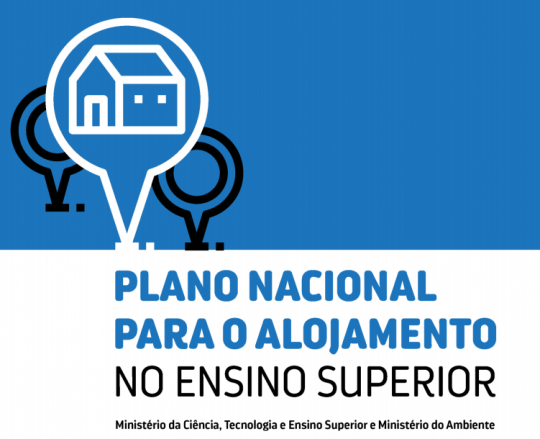The provision of accommodation for students of higher education who are displaced from their place of residence in a decent and affordable manner essential for the enlargement and democratization of access to higher education, which have been given priority in the Program of the XXI Constitutional Government .
With the objective of providing an integrated and long-term response to the housing needs of higher education students throughout the national territory, the National Accommodation Plan for Higher Education was presented in May 2018, based on the principles and mission of the New Generation of Housing Policies, approved by Resolution of the Council of Ministers no. 50-A / 2018, of May 2. It is also in this sense, and complying with Law no. 36/2018, of July 24, that this decree -lei approves the intervention plan for the requalification and construction of student residences, based on the needs of the students of the institutions and respecting their distribution throughout the national territory, and also supported in the objectives and instruments underlying the New Generation of Housing Policies.
The intervention plan, which will be implemented in a phased manner over a 10-year time horizon, provides for the integration of unused real estate, property of higher education institutions and other entities into the National Fund for Building Rehabilitation (FNRE), whose creation was determined by the Resolution of the Council of Ministers no. 48/2016, of September 1, in its current draft, for its rehabilitation, in accordance with the special regime established by Decree-Law No. 150 / 2017, of December 6. In addition to the integration of real estate in the FNRE, other forms of housing for displaced students of higher education are established, in order to maximize the capacity for response and timely intervention, in articulation between local authorities, higher education institutions and other entities . On the one hand, it is ensured the possibility of promoting the creation of housing directly by higher education institutions, namely through the rehabilitation or extension of residences of students of higher education currently in operation or of buildings used for other purposes, the essential guarantees to enable the access to financing of works to be carried out, namely through the Financial Instrument for Urban Rehabilitation and Reconversion and the Rehabilitate for Lease Program. On the other hand, it is promoted the use of available housing in real estate of other entities, through protocols to be concluded between these and higher education institutions.
To accompany the execution of the intervention plan, with the purpose of optimizing the offer of accommodation for students of higher education throughout the national territory, this decree -lei establishes a mechanism for monitoring housing available through the annual communication to the Directorate - General for Higher Education (DGES) of the accommodation offered in the following academic year, as well as the continuous communication of the new projects of construction, re-qualification and start-up of residences. The DGES and the Institute for Housing and Urban Rehabilitation, I. P., are also responsible for monitoring the implementation of the intervention plan. At the same time, this Decree-law establishes a special scheme for the implementation of the first phase of the intervention plan, which complements the interventions currently underway in relation to a number of buildings which have already been part of the FNRE for the provision of student housing. , in any case without prejudice to the immediate development of the steps necessary to achieve the subsequent stages. Indeed, from the survey carried out on the state and needs of student residences in higher education institutions, it was necessary to intervene, urgently and effectively, to ensure a significant increase in the supply of accommodation to students of higher education from the 2019/2020 academic year. In addition, a set of properties of the State's direct and indirect Administration has been identified that are currently degraded and unused, and which, because of their location and characteristics, present great potential for the short term satisfaction of housing shortages in urban centers. The National Association of Portuguese Municipalities, the Council of Rectors of the Portuguese Universities, the Coordinating Council of the Polytechnic Higher Institutes and the associations of students of higher education were heard.

